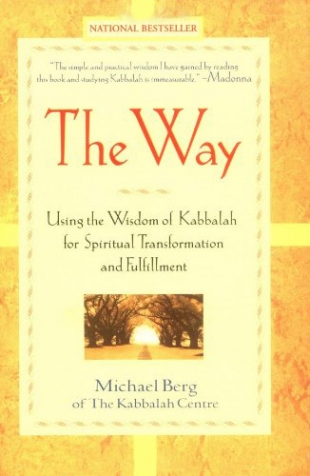We're all in the same boat
"Consider this: two friends went fishing in a small rowboat. When they reached the middle of the lake, one man was surprised to see the other drilling a hole in the bottom of the boat. 'What are you doing making a hole like that?' the first man screamed. But the second man just looked at him calmly and replied: 'Don't worry, it's only under my seat.'
"Clearly, the second man had never studied Kabbalah! Still, in contemporary terms he might very well consider himself a spiritual person who's just doing his own thing. The shared nature of our spiritual destiny is a significant point of divergence between Kabbalah and other teachings. Transformation, as we've seen, is really about learning to share with others. It's the furthest thing possible from the 'me-centered' focus that's often associated with New Age teachings.
"Our goal, our purpose, and our only reason for being in the world is to transform our desire to receive for ourselves alone into a desire to share—and by doing so, to become one with the Creator. We do this because ultimately it is in our own best interests. But beyond transforming ourselves, Kabbalah teaches that we are responsible for the world's spiritual transformation as well. As long as even one of us falls short of the goal, all of us fall short. We're all in the same boat. If one person is sinking, we are all sinking.
"This concept is explicitly derived from the paradigm of the Light and the Vesel. When the primordial Vessel shattered into an infinite number of pieces, the fragments became the matter and energy that comprise the physical world. Everything that we see, hear, taste, smell, or even think about is part of the original Vessel. We ourselves are the Vessel, and therefore everything that exists in the physical realm is part of us.
Take action in the real world
"From this realization comes a very specific insight into how we can best live our lives:
"At least half of what we do in the world ought to be directed toward assisting others. This supremely important work can take many forms, but kabbalah explicitly teaches that practical action is at least as worthwhile as piety or righteous observance. Feeding a hungry person is just as likely to bring transformation as prayer or meditation. Simply put, Kabbalah requires us to take real action in the real world.
"But doing this from a kabbalistic perspective involves more than just running out of perform 'good deeds.' True sharing requires a basic shift in the way we see our lives and our relationships to the people around us. Quite naturally, most of us have learned to see our lives as ongoing stories, with ourselves as the main character. We try to move the plot forward toward our goals, which for many people are defined in material terms: a beautiful home, a substantial income, recognition for personal and professional achievements. These are certainly worthwhile aspirations, but kabbalah cautions us against making them the primary focus of our being, especially at the expense of others. And kabbalah also offers ways of understanding our lives that are positive alternatives to the heroic sagas most of us strive to construct."
